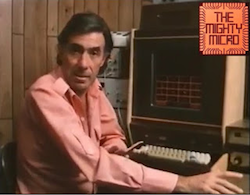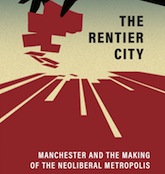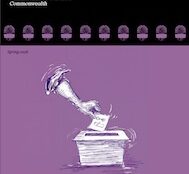It is more than 40 years since a radical TV series pointed the way to a more humane, computer-based society. CHRISTOPHER OLEWICZ wonders why today’s Tory government is still resisting the true potential of new technology to transform our working lives.
“You know we’ve embarked on a wild adventure, we really have. And nobody really knows where this is going to lead, and in a sense nobody is in control. In a sense the technology is leading us, and we don’t know where it’s leading us. All we can sensibly speculate is what is going to happen in the next 10 to 15 years. But goodness sake, where is it going to be by the time we are old or our children are old? I’ve got a three-year-old daughter, and I think, ‘What is it going to be like when she is my age?’ I really believe that we have the capability today to build a much better world for her than the one we are living in today.”
James Martin, speaking on ‘The Mighty Micro’, 1981
In his 2021 conference speech, Prime Minister Boris Johnson promised a post-pandemic future of “buzzing town and city centres” but provided no detail about how this would be achieved beyond encouraging, or forcing, workers to return to the office. His comments, and those of many colleagues during the Conservative Party conference, fly in the face of 40 years of economic and social trends – accelerated by the Covid-19 pandemic – that have made homeworking a realistic prospect for millions of office workers.
 “As we come out of Covid,” the prime minister stated, “our towns and cities are going to be buzzing with life.” Without evidence, he claimed that “a productive workforce needs the spur that only comes with face-to-face meetings and water cooler gossip. If young people are to learn on the job in the way they always have, we will and must see people back in the office.” This is 20 years after TV comedy The Office satirised the meaninglessness of much of modern working life.
“As we come out of Covid,” the prime minister stated, “our towns and cities are going to be buzzing with life.” Without evidence, he claimed that “a productive workforce needs the spur that only comes with face-to-face meetings and water cooler gossip. If young people are to learn on the job in the way they always have, we will and must see people back in the office.” This is 20 years after TV comedy The Office satirised the meaninglessness of much of modern working life.
In repeating the refrain of last year’s ‘Get Back to Work’ government campaign, the latest Conservative culture war seems to be focused on the divide between “unproductive” workers, who can work from home, and “productive” workers who cannot. Oliver Dowden MP called for civil servants to “get off their Pelotons and back to their desks”, while Jake Berry MP “joked” at a conference fringe meeting that Whitehall had to end its “woke-ing from home” culture, and staff should return to the office full-time.
“Sorry, I mean working from home,” he said. “But let’s be honest, it often is woke-ing… Workers in my constituency, people working in our shops, people working in our public services, need to get back to work, and the government can give leadership here.”
This trend was capped by Iain Duncan-Smith’s front page spread in the Daily Mail which inferred that it is our national duty to return to the office to support the “hundreds of thousands of small businesses” and help repair our “wider economy and our social fabric”.
It is sad to see the Conservative Party, which has long boasted of leading Britain into a future based on personal and consumer choice, insist that we return to our old ways. Conservatives appear happy for technology to reshape our consumer habits, while opposing moves that allow people to change their work habits. Is it not the role of government to adapt our social and economic system to our needs, rather than adapting our needs to suit an economy preserved in aspic?
The meaning of work
How have we got here? Why do we so blithely assume there will forever be enough unskilled and semi-skilled jobs around for everyone to get on in life – to own their own house and car, to have access to the internet? It is not realistic to suggest that in 40 years time we will be a nation of 3D printer technicians or coders. It is time for us to have a realistic conversation about the meaning and value of work.
 Forty years ago, soon after Margaret Thatcher’s Conservative government was elected, ITV aired The Mighty Micro, arguably the most influential television programme ever shown in Britain. A six-part documentary presented by Dr Christopher Evans (left), The Mighty Micro expanded on the assertion in Evans’s book of the same title that microprocessors would quickly come to dominate our lives, leading to drastic changes across the whole of society. He was correct.
Forty years ago, soon after Margaret Thatcher’s Conservative government was elected, ITV aired The Mighty Micro, arguably the most influential television programme ever shown in Britain. A six-part documentary presented by Dr Christopher Evans (left), The Mighty Micro expanded on the assertion in Evans’s book of the same title that microprocessors would quickly come to dominate our lives, leading to drastic changes across the whole of society. He was correct.
Although the series struck a largely positive tone – the first five episodes demonstrated various emerging practical applications of computers – Evans did outline his concerns about a computerised society, about how it would be managed and the consequences for those who attempted to resist it. He feared that Britain would be left behind if immediate action was not taken to educate the public. Computing in Britain in the late 1970s was the preserve of nerds and hobbyists. Most people had never even seen a computer let alone used one.
The concerns Evans raised hit home. Questions were asked in Parliament about the challenge we faced due to the new technology, and his series led to the creation and launch of the BBC Computer Literacy Project, the most successful initiative of the Thatcher era (because it was the most inclusive and forward thinking).
Spurred on by a competition to create a computer for schools, Acorn Computers produced the BBC Micro (pictured below), an engineering marvel that outperformed most, if not all other personal computers on the British market. Computers were introduced into the majority of primary schools in Britain and captivated children were soon asking their parents to buy one for the home.
If a family couldn’t afford a Micro, they could purchase a Sinclair ZX Spectrum (the most popular home computer in Britain), or a Dragon (designed and built in Wales). A sign of their longevity – and Conservative underinvestment – is that the BBC’s Micro could still be found in operation in many primary schools in the mid- to late-1990s, long after IBM-compatibles had begun to dominate the home computer market.
A humane way out
Unfortunately, Evans died before the sixth and final episode of The Mighty Micro. In his place, the programme makers interviewed four influential figures on the future of work – Barrie Sherman, an author and trade unionist; Jack Good, a scientist who worked at Bletchley Park on the Enigma project; Tom Stonier, an academic at Huddersfield Polytechnic; and James Martin, an early computer pioneer and businessman.
Their speculations were astonishingly prescient, as the following quotations show:
 Barrie Sherman: “We’ve got a very, very deeply engrained work ethic … in Britain. If you ask a person in the street ‘what are you?’, they won’t say that they’re a man, five foot six, and a chrysanthemum grower. They will say they are a joiner, a carpenter, a milkman.
Barrie Sherman: “We’ve got a very, very deeply engrained work ethic … in Britain. If you ask a person in the street ‘what are you?’, they won’t say that they’re a man, five foot six, and a chrysanthemum grower. They will say they are a joiner, a carpenter, a milkman.
“People identify with work. There is an identity in a job. When people become unemployed and don’t work, they tend to lose their identity. There’s a financial penalty, but also a very large psychological penalty. People feel they’re not complete if they’re not working … frankly, that is going to have to change.
“We shouldn’t really think in terms of hours. We should think in terms of trips to work … the number of days you work in a week… People will be going for three days, two-day weeks, five-day weekends. That will be the answer. If robots just do the drudgery type jobs, providing we have the rest of our system geared to people being either unemployed or working less time, then they must be a good thing.”
Tom Stonier: “At the moment we’re still worried about getting enough money to pay for sustaining the physical aspects of society. That is going to disappear very rapidly. Thirty years from now I would expect no more than 10% of the labour force to be engaged in materials production. The other 90% will be engaged in services, predominately in jobs that relate people to people – education, healthcare and other social services, and leisure and industry.
“Just as the major economic activity of the agrarian era was to produce food, the major activity of the mechanical era was to produce manufactured goods. The major economic activity is going to be to fulfil psychic needs and we will create a much more humanistic society because basically all the hard work that needed to be done to keep our bodies alive will be done by the robots and machines. The difficulty is knowing how best we can get from here to there.”
Jack Good: “There is a fear or hope that robots will eventually be able to do all the manual work and even all the uninteresting clerical work, so there is a possibility that the amount of work men have to do on average will be reduced to an hour per week. This is very pleasant if only we know how to use our leisure time, but at the same time it is also dangerous. We don’t know whether we’ll be able to use our leisure time wisely. We don’t know whether … humans are dispensable.”
Barrie Sherman: “This technology sharpens our conflicts… We can either say we carry on as we are at the moment with all of our social, economic, and political institutions, and use the technology. To my mind, all that will mean is a mass of unemployment, a mass of misery, a mass of fear, and you will have to run society at bayonet point. There is no other way.
“There is an alternative. It is to take a humane way out: to negotiate; to treat the unemployed, if there are unemployed, as human beings; to actually reduce the amount of work and increase the amount of leisure; to get a better life for us, our children and our grandchildren by redistributing the fruits of this technology. If we take this way, it’s got to be a far better world.”
James Martin: “We have the capability now to get superlative education into the home, we have the ability to create all manner of new job opportunities. You’ve got these millions of people converging on Manhattan every day in those awful trains. I used to live 50 miles away from here and commuted for an hour and a half there and then an hour and a half back each evening. What a waste of life that is. And there’s simply no need.
“You look at these big skyscrapers here, big insurance companies, what do people do? They come to those buildings to use the telephone, talk to people, use typewriters, hold meetings. In fact, everything they do they could do in their little village 100 miles away providing the office they walk to or bicycle to in that village has a satellite antenna on its roof or an appropriate high capacity link of the kind we are now building.”
All our tomorrows
At the end of The Mighty Micro, James Martin asks what the world will be like when his three-year-old daughter is his age. Martin was 46 at the time and his daughter will be 46 this year. If Martin – who went on to fund an Oxford University research centre – believed in 1979 that the era of homeworking was almost upon us, one must ask what has taken so long?
Even if it is political posturing rather than sincere belief, the Conservative government appears willing to stifle homeworking and use technology to preserve outdated working arrangements for the sake of electoral success. In this respect, the world of today isn’t so different to 1979.
Despite the internet service revolution, we are still struggling to reconcile ourselves to the idea that to be productive we must commute to the office. The longer the Conservative Party plays political games with all our tomorrows, the more we will be left behind.
The government should be providing grants to build shared working spaces in our neighbourhoods, and to improve broadband infrastructure in rural areas so that people can work in their localities without having to commute. We need to stop blaming the unemployed for the lack of work, or provide extra support to help them move to areas where there is work. These would be the policies of a forward thinking, “world leading” and “global” Britain.
—-
Christopher Olewicz is a historian and director of Principle 5: Yorkshire Co-operative Resource Centre based in Sheffield.


